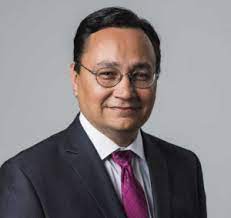Guest Opinion. The workers employed by Cherokee Nation take care of all of us. Whether serving as clerks, doctors, nurses, food service workers, teachers, accountants, language preservation experts, maintenance technicians or another of the many occupations in our workforce, they help hundreds of thousands of Cherokees across our reservation and the country. Our government workforce is over 4,200 strong, and 82 percent of them are Cherokee.

A workforce that is fairly compensated and treated with respect is a workforce that can deliver for the Cherokee people. That’s why when Deputy Chief Bryan Warner and I took office in 2019, we worked with the Council of the Cherokee Nation to raise the minimum wage to $11 per hour. Cherokee Nation employees also receive health insurance, life insurance and a retirement plan. They are eligible for annual pay increases, usually around 3 percent, as well as a $1,000 Christmas bonus. More recently, we added a paid “wellness leave” benefit, and we will be adding more amenities such as walking trails at our work sites.
Want more Native News? Get the free daily newsletter today.
During the COVID pandemic, we have taken the need to protect workers very seriously. We invested millions in “premium pay” for those who worked in public settings, paid leave for those who could not, and telework for those who worked remotely. We recently sent out a second round of premium pay, with mechanisms to pay them more if the risk of COVID increases.
We aren’t stopping there. Deputy Chief Warner recently told me, “When we talk about increasing pay, we are really talking about investing in the Cherokee people.” He is absolutely right, which is why I signed an executive order that sets us on a path to a $15 minimum wage by October 2025, with the first increases toward that goal starting next fall.
Just as importantly, the order commissions an expert study of our entire government workforce pay structure. As we have grown over the years, pay adjustments have been uneven across the workforce. The comprehensive study will help correct this and ensure that, as we increase the minimum wage, we avoid “wage compression,” where long-tenured employees see the value of their years of service diminished by entry level workers starting at a higher minimum wage. We will also study any gender pay inequities in our workforce, because men and women deserve an equal chance at success.
The order goes further for our workers earning minimum wage who have been hit hardest in the COVID-ravaged economy. We are developing a “bridges to success” program, launching early next year, to help them increase their earnings and achieve their career dreams.
None of this focus on our government workforce should take away from the service provided by the thousands of workers in our businesses and other entities. For that reason, my executive order encourages management at all of our entities, including Cherokee Nation Businesses, to make comparable efforts to improve compensation. The entire Cherokee Nation work family – over 11,000 men and women – are worthy of our best efforts.
We must continue exploring ways to go further, so that we always remain the employer of choice for talented Cherokees. From expanding benefits, to further addressing mental wellness, to improving a healthy work/life balance, I am convinced we can do more.
The Cherokee people deserve the best and brightest public servants in all positions. We have that now, but we will lose it if we do not take care of our employees and plan for the future. I firmly believe that the steps we take today will ensure that the next generation of talented Cherokees living here and around the country will flock to government service with the Cherokee Nation. Jobs and skills that we have yet to even imagine are theirs to master and to harness for the good of the Cherokee people. The greatest aspirations we have for our great Nation are very much in the hands of Cherokee Nation employees today and in the future.
Chuck Hoskin, Jr. is the principal chief of the Cherokee Nation.
More Stories Like This
What Michigan Owes Its Tribal NationsBuilding a Stronger Nation Through Service
Is Oil Worth More Than Water?
Tribal Economic Development Programs in the Federal Contracting Environment: What They Are, and What They Are Not
Why Redefining Public Health Degrees Would Harm Native and Rural Communities
Help us defend tribal sovereignty.
At Native News Online, our mission is rooted in telling the stories that strengthen sovereignty and uplift Indigenous voices — not just at year’s end, but every single day.
Because of your generosity last year, we were able to keep our reporters on the ground in tribal communities, at national gatherings and in the halls of Congress — covering the issues that matter most to Indian Country: sovereignty, culture, education, health and economic opportunity.
That support sustained us through a tough year in 2025. Now, as we look to the year ahead, we need your help right now to ensure warrior journalism remains strong — reporting that defends tribal sovereignty, amplifies Native truth, and holds power accountable.
 The stakes couldn't be higher. Your support keeps Native voices heard, Native stories told and Native sovereignty defended.
The stakes couldn't be higher. Your support keeps Native voices heard, Native stories told and Native sovereignty defended.
Stand with Warrior Journalism today.
Levi Rickert (Potawatomi), Editor & Publisher
